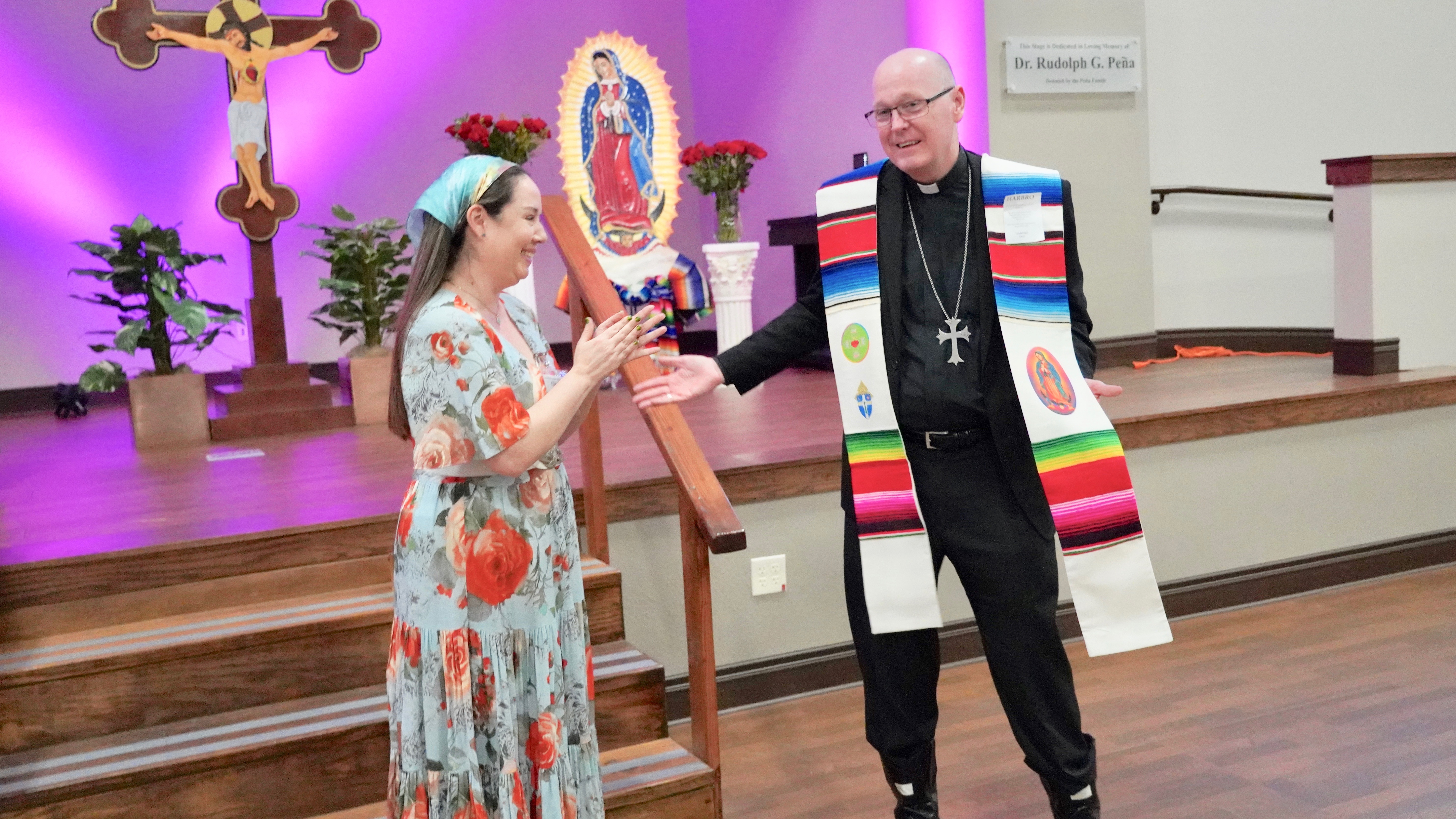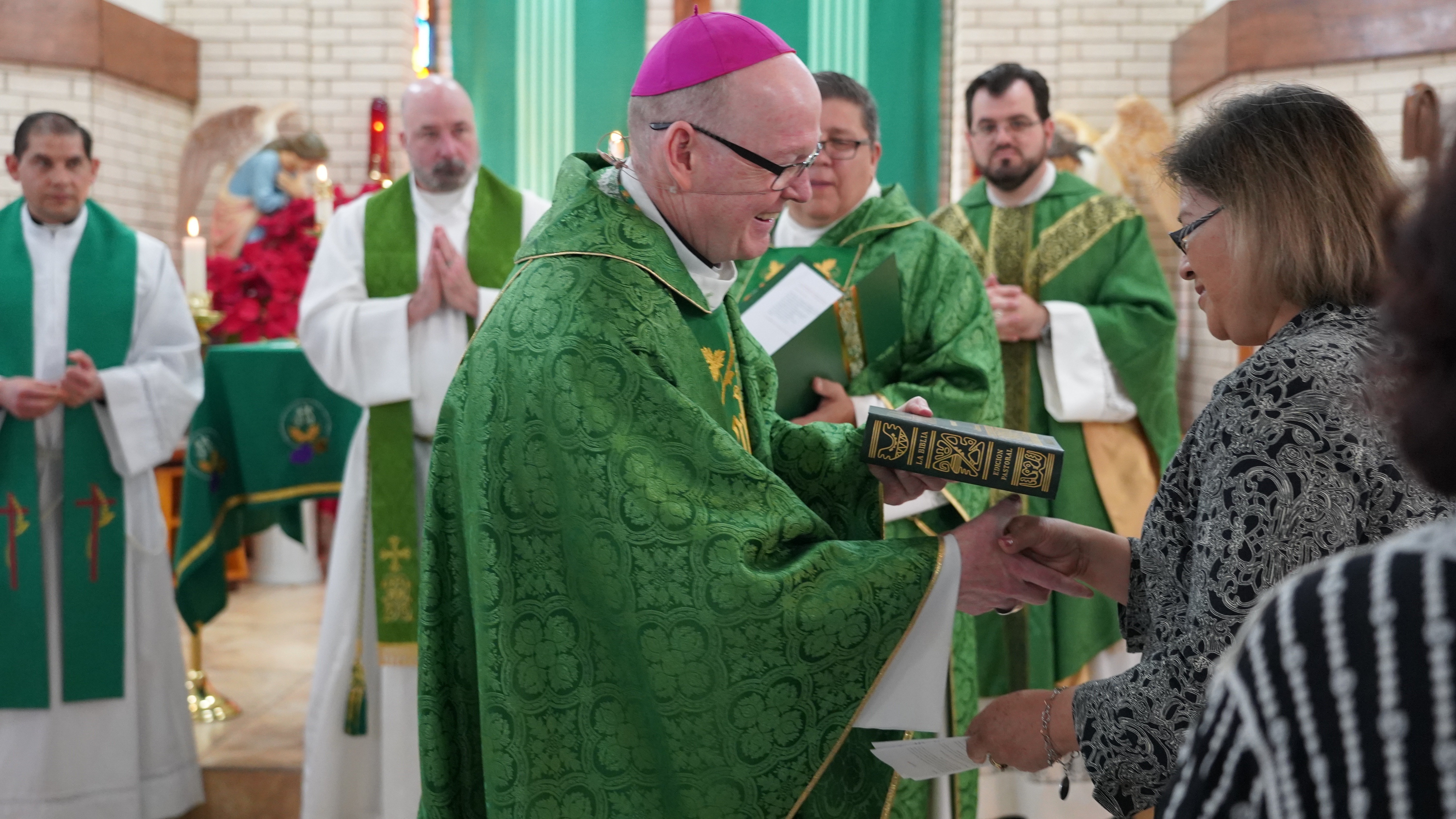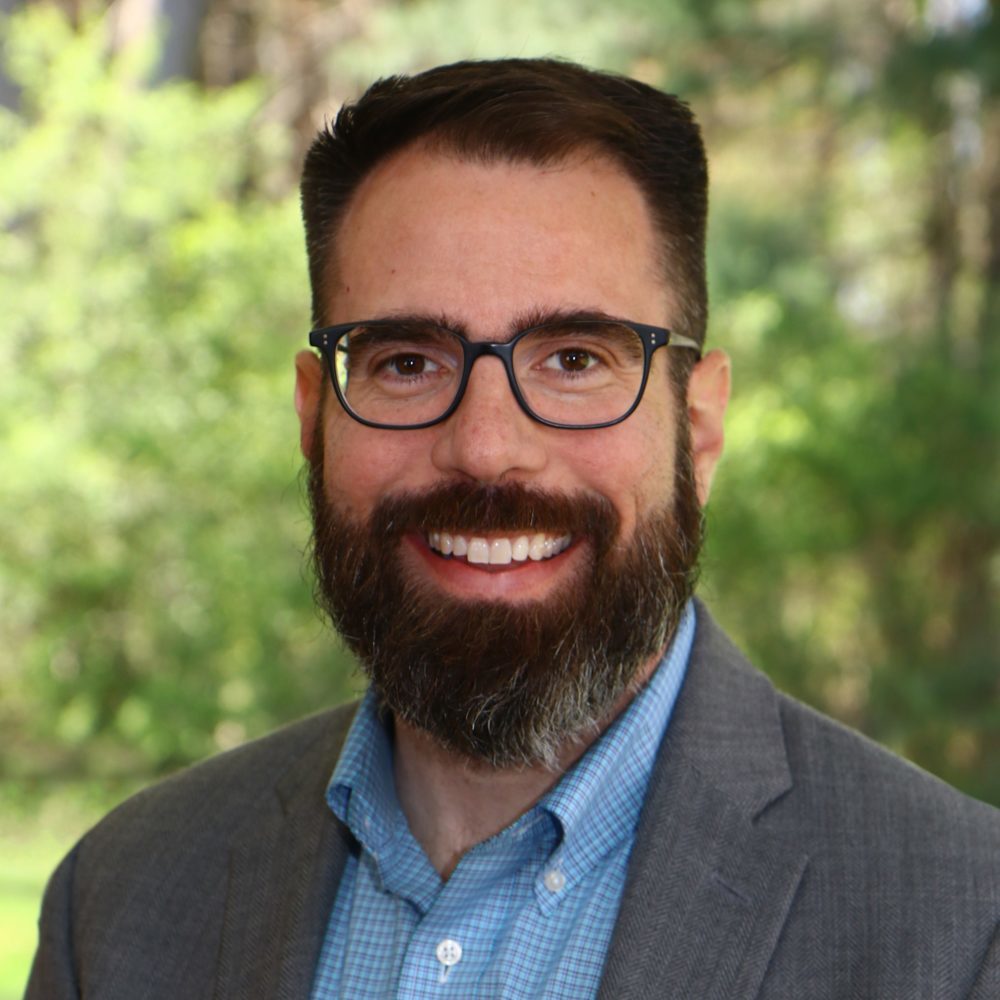“I do not impose a vision on people. I receive a vision, announce it, and encourage it.”
– Bishop Brendan Cahill, Diocese of Victoria
Dear Friends,
Last week, I introduced you to our cohort in the Diocese of Victoria and the strides they are taking toward evangelization and catechesis in the diocese. Today, I would like to invite you to take a step closer to their story. It began nearly two decades ago with Bishop Brendan Cahill when he was a priest enrolled in Catholic Leadership Institute’s Good Leaders, Good Shepherds cohort in the Diocese of Galveston-Houston. Bishop Cahill gathered what he learned then as a priest and is applying it now as a bishop in his diocese.
Bishop Cahill’s leadership style is one of accompaniment: “I do not impose a vision on people. I receive a vision, announce it, and encourage it.” This is God’s office. This is God’s ministry.
Read below about how the bishop is taking next steps for himself as a leader and bringing his whole diocese along for this Holy Spirit-led journey.
From Priest to Bishop: Growing in Leadership

While the journey that Bishop Brendan Cahill established between the Diocese of Victoria and Catholic Leadership Institute has been in progress for two years, for him, the start of that journey began almost two decades prior.
In 2005, Bishop Cahill was a priest in the Archdiocese of Galveston-Houston, TX and was enrolled in Catholic Leadership Institute’s (CLI’s) Good Leaders, Good Shepherds cohort. There, Bishop Cahill learned invaluable leadership skills as a priest and believes that “some of the principles I learned then are helping me now in forming a team within the diocese, communicating expectations, and the principles of being value-driven in leadership. Good Leaders, Good Shepherds formed me a lot, so that I am better able to listen to people and know that every voice matters. CLI taught me how to draw out leadership from everybody.”
Grounded by these principles, Bishop Cahill is furthering his own leadership skills by enrolling himself in regular one-on-one coaching with CLI and inviting his chancery staff to do the same. Together, they are assessing their strengths, communicating growths, and planning.
The bishop’s leadership efforts are noticed by his flock and within the chancery. Ashley Novosad, executive assistant to the superintendent of the Catholic schools shared, “Going through this process, our bishop learned a lot about himself and his people. He has taken the advice and knowledge from the experience and applied it to his day-in and day-out dealings with his staff.”
Fr. Jacob Koether, vicar for evangelization and catechesis shared, “The bishop wants us to be a team and do whatever God wants.” This united vision is noticed and practiced now throughout the diocese. Bishop Cahill is also bringing together priests of the diocese, and so far, has seen 100% participation in fraternal cohorts. Soon, select parishes in the diocese will administer CLI’s Disciple Maker Index survey to capture the pulse of the faithful and help meet their needs.
From the start of the envisioning process with CLI, members of the chancery have been uniting in their different offices, goals, schedules, and events to align with the core vision of the diocese. Bishop Cahill said their meetings look different now: “We are structuring our meetings to meet the needs of our priorities. We talk in a different way. Instead of talking about filling out paperwork, we are talking about Jesus.”

Looking back over the past two years of leadership formation, Bishop Cahill noted three areas of growth:
Focus on Spiritual Mission
Bishop Cahill noted that, “We have a million voices telling us what to do. Our leadership role is to keep the spiritual anchor, for we are doing this because Jesus Christ has called us, and we are doing it to serve His mission in the world. It helps clear out excess stuff and focus on what is important.”
While everyone in the chancery wears multiple hats and contributes to the diocese’s main priorities, they are more aware that the office of ministry is God’s office. As stewards of His work, the bishop and his staff can live out of their ultimate priority of doing the work of God.
Bishop Cahill described the coaching he receives from CLI “like a spiritual direction of leadership.” The principles of leadership and diocesan support are constantly built, formed, and forged with the eyes of His mission.
Confidence in Vision
With spiritual focus comes greater confidence in the diocese’s vision. Bishop Cahill noted that having a long-term vision that drives current practices is helpful, and steps taken toward those goals is encouraging. One of the diocese’s goals, for instance, is that every parish will establish a leadership team, comprised of 5-7 young couples. These families will help form and evangelize members of their parishes. The bishop noted that, “We know this might not start this year or even next year, but we’re establishing a shared vision and building the spiritual foundation to make this possible.”
Synodal Spirit of Listening
Bishop Cahill notices that his cohort is growing in patience with relationships and time. These common practicalities make it possible to practice true listening skills. It is important to give time to listen to the people of God.
Ashley Novosad notices this growth in listening. “Our leaders in the chancery are in a place of better listening. It’s not that they did not listen before. Now, I feel comfortable being able to talk to them about things. They really hear me out. It is a true listening that feels honest, with discernment.”
This aligns with the spirit of synodality. Bishop Cahill explains, “We have been practicing synodality and it has really helped us. I think CLI has been teaching us this for a long time: how to listen. It is not that we have all the answers. We have THE answer: Jesus Christ. And we listen to everybody.”
In this spirit of listening, Bishop Brendan Cahill and his diocese are looking forward to seeing the fruits of His mission and their labors grow in the months and years to come. Together, they are moving forward as a team with greater understanding of their roles and responsibilities, support in their work, and unity in one mission of evangelization within the Diocese of Victoria.
Bishop Cahill shares, “Catholic Leadership Institute has helped us as a diocese to focus our vision and our work together with the fraternity of priests and the people of God in our area. We have a clearer vision and the steps to follow it. I am very thankful for CLI and all they have offered to us and very thankful for the benefactors who make it possible and reasonable for us.”
Our CEO Daniel Cellucci's weekly email, the DIAL: Discerning Insights About Leadership.
CLI helps empower and energize Catholic leaders by providing focus and courage to engage the culture with an apostolic mindset.
CLI provides vision and hope about the future of the Church with a humble, yet strategic approach.



